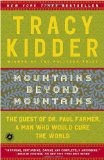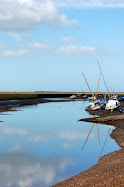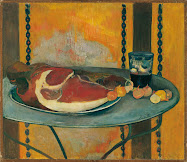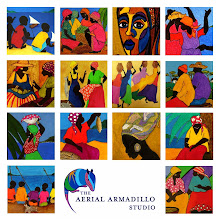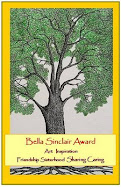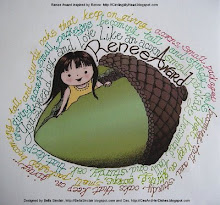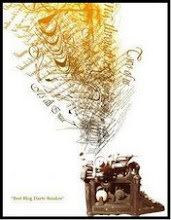An extract from ‘The Ashes of War’ – an unfinished novel based on a personal account left by my father.

Olivia, maybe? (homage to Modigliani)
Austria - May, 1945
During the four days I spent on the farm waiting, I received no message from Olivia. The farmer was busy out of doors and his wife did not speak Italian and since I spoke next to no German we silently went about our business.
I watched the road below through binoculars. The mostly horse-drawn traffic from the south was heavy, but not so great as one would have expected on such an important route. I’d established a good wireless connection with Geordie and sent back routine reports. Very few front-line troops came through. A few Austrian units, a great many S.S. and Wehrmacht police, an occasional armoured car and thousands of carts and trailers, piled high with loot. One could have recognized the column as that of a beaten army from twenty thousand feet above the road. In spite of the loot, there was a dejected lifelessness about the stream of humanity which seemed to affect the entire valley.
On the afternoon of May 8th I had my wireless tuned in to London. I heard Winston Churchill announce victory and I longed to share the news with someone. The house was empty, even the farmer’s wife was out collecting eggs from hiding places around the farmyard.
I went down to the road in the vain hope that I might meet the first of our armoured cars, but I knew that in reality they would come in further to the east. The only thing I saw in a place of surpassing beauty, with the sun shining on the Dolomite spires, was a picture of defeat.
Odd how one’s memory wanders. As I sat on a railing at the edge of the road staring unseeingly at the passing carts, my mind went back to Florence and Olivia. We were standing on the balcony of the house where she was staying with friends. I had come down from the front, in the hills above Bologna. I remember her friends had gone out for the evening and we were alone. The light in their drawing-room was harsh and glacial so we went out on to the balcony which overlooked the Arno from the north bank. It was November and one of the only warm, dry nights that winter.
I remember her making a remark about the electric light in Florence. ‘It is lucky that the light is on at all. Usually it fails in the middle of the afternoon and the opera is cancelled half-way through. Then you have to use candles to read a book and that is never good enough to see properly.’
‘You miss your books, don’t you? I reached for her hand.
‘Yes - of course.’
‘I do, too,’ I smiled at her
‘I know,’ was all she said and then silence.
The night was starless. We could hear the tumbling flood waters of the Arno crashing against the pillars of the broken bridge. There was not a flicker of light from the crazy buildings on the Ponte Vecchio, which we could feel rather than see in the darkness, but there was an endless stream of traffic with pricking headlights crossing into the city over the temporary bridge at the head of the town. Olivia leant back against a window. I couldn’t see her face, so I felt for it in the darkness, holding her hand in mine as she directed me. ‘We could get married here,’ I said. ‘I have four days.’ There was a long pause. I waited. 'Olivia?' She had turned away. Even in the darkness she didn’t look towards me as she spoke. ‘I may never marry - anyone. We must wait until after the war. While the war is on I am not myself.’ Her voice had risen a little. ‘Just now I don’t want the things I would normally want from marriage. I am not sure that you really know me.’ I started to interrupt but she pressed my hand tightly to silence me. Her voice grew husky again. ‘I don’t even know whether I understand myself. Because I see so much suffering, I suffer too. I think I suffer as much - not now when you are here, when it’s dark like this and seems peaceful....’ she took a deep breath. ‘I think I suffer as much as I can stand.’
The roaring of the wide rushing Arno seemed to grow louder as the waters from the drenched mud-cratered hills hurtled against the broken piers. I wondered what I could say to her. After a long pause she spoke again, jerkily. ‘Marriage for me, and I think for you too, is something that needs planning. We know each other only from perfect moments in the Apennines, in places like Positano and on Capri. That is no test. Attraction is not everything.’ I was about to protest, but she reached up and gently put a finger to my lips. ‘We must know more when things are once again normal.’
‘Will they ever be?’ I asked.
‘You don’t know me very well, in spite of everything we have done together. I want you to know me better. You can’t just now because I am unsettled.’
‘I think I know you well enough,’ I protested.
‘You feel upset,’ she said. ‘You shouldn’t. Time is all we want - and peace.’
I didn't see Olivia again for a long time, but I often go back in my mind to that dark balcony in Florence to think. Still now, many years later.
The hot sun and the smell of damp grass on the hillside had made me feel drowsy. I stood up, stretched and turned to climb up to the farm.
Maybe they did get married after the war had ended and they had time – and peace. And perhaps they’d had dinner together that night? I don’t suppose it would have been anything lavish since Europe was engulfed in war at the time. A simple, comforting bowl of Tuscan Bean Soup would probably have been welcome on that November night in Florence. I know I should ask Lola of the delectable Aglio, Olio & Peperoncino blog for advice here, but I do think she would agree that this delicious and nourishing soup would have been just right.
I got this variation from an Italian friend when we lived in Uganda.

500g cannellini beans, soaked in cold water overnight (or you can used tinned beans)
2 tbsp olive oil, plus extra to drizzle
2 garlic cloves, chopped
3 tbsp chopped parsley, plus extra to garnish
1 onion, finely chopped
1 leek, finely chopped
2 carrots, peeled and sliced
4 sticks celery, sliced
1 sprig rosemary
2 tsp chopped fresh oregano
4 bay leaves
1 litre chicken stock
Freshly ground salt and pepper
Freshly grated Parmesan
4 slices toasted ciabatta
Drain the soaked beans and rinse thoroughly, then place in a large saucepan, cover in water and bring to the boil. Boil for 10 minutes, then lower the heat to a simmer and cook for a further 45 minutes with the bay leaves added. (Leave this bit out if you’re using canned beans.)
Heat the oil in a large saucepan and add the garlic. Cook for a minute, add the herbs and the vegetables, then cook for a further 2-3 minutes.
Meanwhile, bring the stock to the boil and add to the vegetables. Simmer for 10 minutes. Add the beans and cook for a further 10 minutes. Adjust the seasoning.
Place the toasted ciabatta in four warmed serving bowls and ladle over the soup. Scatter over the extra parsley, sprinkle with Parmesan and drizzle with olive oil before serving
 Do pop over to Shan’s blog where she hosts the What’s Cooking Wednesday for more delicious recipes from bloggers at every point on the compass!
Do pop over to Shan’s blog where she hosts the What’s Cooking Wednesday for more delicious recipes from bloggers at every point on the compass!
















































